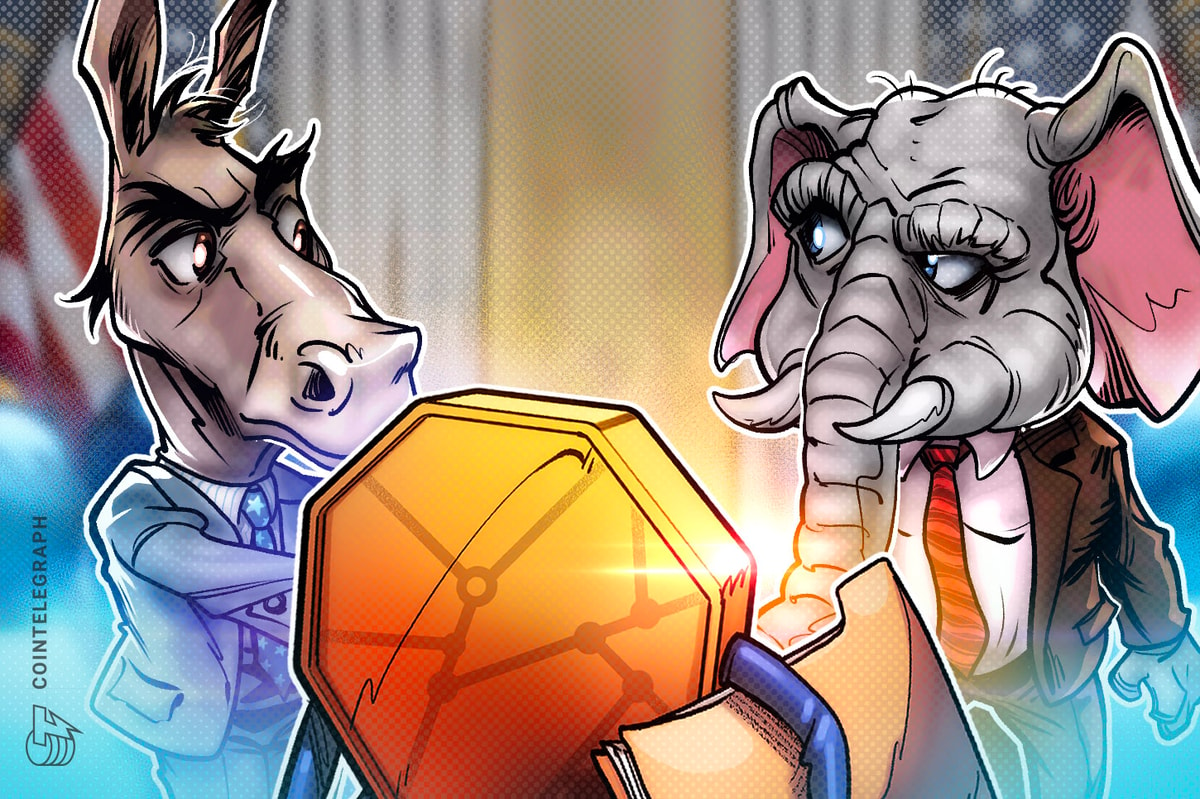The United States House of Representatives finally elected a speaker last week, concluding a four-day, 15-ballot ordeal that left many wondering if po
The United States House of Representatives finally elected a speaker last week, concluding a four-day, 15-ballot ordeal that left many wondering if political gridlock was now the new normal in the U.S., and if so, what the consequences would be.
For example, were the concessions made by Republican Kevin McCarthy to secure his election as speaker ultimately going to make it difficult to achieve any sort of legislative consensus, making it impossible for the U.S. to raise its debt ceiling and fund the government later this year? Not all were optimistic.
The House of Representatives will be largely “ungovernable” in 2023, Representative Ritchie Torres, a Democrat from New York, told Cointelegraph on Jan. 6, shortly before joining colleagues for that day’s series of ballots — which finally ended after midnight with resolution. “The 117th Congress was one of the most productive legislative sessions ever,” Torres noted, “but the 118th will be one of the least productive.”
It’s worth asking amid this latest brouhaha in the world’s largest economy what it all means for digital assets and blockchain technology. Does it suggest that one shouldn’t expect any meaningful crypto legislation from Congress in 2023?
A bipartisan coalition exists
Not necessarily. “On the surface, at least,” a bipartisan coalition exists in the House to pass crypto legislation, said Torres, who sits on the House Committee for Financial Services and who himself introduced crypto legislation in December in response to the FTX collapse.

Crypto reform has been urged on and off by both Democrats and Republicans in the House and Senate recently, after all. Indeed, analytics firm Chainalysis recently highlighted some 20 bills before Congress that could affect cryptocurrencies and stablecoins. The House Committee on Financial Services alone has a pro-crypto incoming chairman, Republican Patrick McHenry, along with crypto-friendly Democrats like Torres and Maxine Waters.
But “deeper down,” Torres sees cross-currents that could disrupt legislation: The political far right could thwart any crypto initiatives as a matter of principle — they oppose all regulation — while the far left may also want to keep digital assets unregulated in order to delegitimize and ultimately kill them. Crypto legislation, in the eyes of this group, would be equivalent to acceptance of the emerging industry.
Recent: Remote work could redefine the global workforce for good
Torres, for his part, believes that legislative action is critical. “Congress has an obligation to intervene,” he told Cointelegraph, as digital assets are too volatile to remain unregulated. SEC Chair Gary Gensler’s two-year efforts to bring cryptocurrencies and stablecoins under federal oversight through regulatory action alone haven’t succeeded, he said. It’s become clear, especially in light of the FTX fiasco, that more durable legislative solutions are required.
Nor does Torres believe that recent events will delay or sink the House’s scheduled FTX-related fraud hearings. For one thing, it’s just easier to hold hearings than it is to pass legislation, he noted.
“We are optimistic”
To the larger legislative question, though, maybe Torres is too pessimistic. The Crypto Council for Innovation, which advocates for a federal regulatory framework to provide clarity for all market participants, remains hopeful. “We are optimistic that given broad bipartisan support by lawmakers, a comprehensive bill could make it to the president’s desk this Congress,” Brett Quick, the council’s head of government affairs, told Cointelegraph.
There will be challenges, of course. The “razor-thin” nature of the Republican majority and the continued demands of the House Freedom Caucus members, who held up the speaker election process for a week, won’t make things easy. But “crypto may be one of the few areas where there is enough broad bipartisan support from all points on the political spectrum that moving legislation this Congress is a reasonable expectation,” added Quick.
Clark Flynt-Barr, senior policy adviser at Chainalysis, like Torres and Quick, applauds the bipartisan collaboration that has emerged around crypto in the past year. She cited the House’s Waters-McHenry stablecoin bill alongside the U.S. Senate’s bipartisan Lummis-Gillibrand Responsible Financial Innovation Act. Flynt-Barr expects this sort of cooperation to increase, especially in light of recent industry events like the FTX collapse, telling Cointelegraph:
“Crises and scandals — and now fraud — often give more momentum to reforms and regulations that might not otherwise be the top priority.”
Care must be taken, though. Not any sort of lawmaking will do. It’s important that Congress takes the time to really learn about cryptocurrencies and blockchain technology. Otherwise,…
cointelegraph.com
